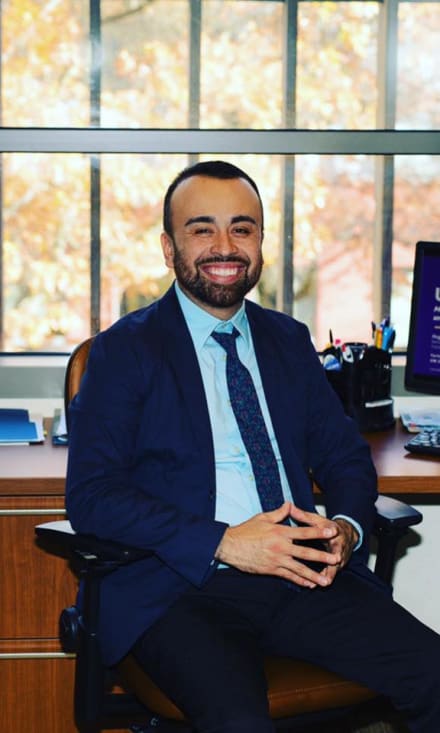How to Advise and Support Undocumented Students
College life can be tough. For undocumented students, having professionals on campus who are aware of and trained to address their needs is crucial.
Hugo Garcia Villa coordinates the University of Washington’s Leadership Without Borders program, which helps undocumented students. He has some tips for advisors on how to support undocumented students and some of the common challenges they face. He also describes how on-campus professionals can be a resource to undocumented students.
1. Familiarize Yourself With Undocumented Students’ Challenges
Garcia Villa said that it’s important to know about the challenges undocumented students face — and that there are many. He talks to his undocumented students about legal issues they may have, mental health situations they’re working through, and financial aid.
“Because of the number of issues, it’s important that there are multiple professionals and departments on campus that are capable of understanding undocumented students’ issues and working with the students to overcome their challenges,” Garcia Villa said. “Fortunately, I work with a great group of partners and departments across campus, and the University of Washington has worked really hard to reflect that in its mission and practice.”
2. Develop a Network — And Use It
“Immigration can be a very complex issue, and when you factor guidance or advising for students, it can get very complicated,” Garcia Villa said. “Admittedly, there are times when I don’t know all the answers. There are so many scenarios where students come into my office that have health problems and cannot access healthcare or they need emergency financial aid. But in the moment, you utilize your contacts, resources, and partnerships.”
For example, Garcia Villa’s program works with King County Public Health offices, the financial aid office, and other off-campus resources.
“Other times, the issue may be obtaining additional employment for living expenses and helping students prepare for interviews or refer them to employers with supportive policies for DACA students,” Garcia Villa said. “Really, when it comes down to it, it is about recognizing the humanity in every student. I won’t always have the answers to everything, but because I know their experience and the heavy nature of their hardships, I am able to pull all the levers within my reach to make sure that undocumented students have access to what they need to be successful.”
3. Connect With Undocumented Students’ Families
Garcia Villa’s said his office attends and facilitates family sessions, where they talk about Leadership Without Borders.
“We tell parents about our department, that we are here to support your student, and reassure them that we are there to advise and support their student,” Garcia Villa said. “A lot of our students commute to campus and still reside with family so they are just as much a part of the college experience. Because of this, it is important that I am present at these events, connecting with undocumented students that are first generation and at the intersection of different social identities and building community for the student and their family.”

Advice to Give Your Undocumented Students
This is the advice Garcia Villa gives to first-time undocumented college students:
Take advantage of all the resources available to you.
“These students come to college with a wealth of talents or skills, whether they speak multiple languages, have interests that could be turned into side income, or connections to community members that can offer free services that are useful to them,” Garcia Villa said.Find a community of people from different backgrounds.
“On campus, you will have the opportunity to connect with people from different backgrounds that you can learn from, as well as students that share your same identities and struggles,” Garcia Villa said. “No matter the person, they may become a part of your community, including the staff and students in Leadership Without Borders.”Rely on your support system
“I am not immune to the experiences of these students, so I can relate to all their challenges,” Garcia Villa said. “Just like them, I had tough times, but I knew I was not alone because I had the support of my peers, family, and organizations on and off campus. Similar to me, they are not alone and they are more capable of success and overcoming their doubts and difficulties to achieve their dreams.”
Immigration status shouldn’t determine opportunity. Tenacity and hard work should.
With the Golden Door Scholarship, undocumented students invest in their education and define their futures. Learn more about Golden Door Scholars:
